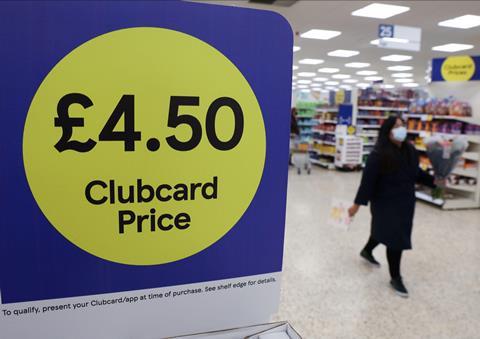IP lawyers have expressed their surprise at the ‘novel’ finding in the trade mark case between supermarket heavyweight Tesco and discount retailer Lidl. Lidl won its claims of trade mark and copyright infringement against Tesco over the yellow circle and blue square that make up its logo. In the 102-page judgment, handed down remotely, Mrs Justice Joanna Smith DBE found in favour of Lidl, but also found in favour of Tesco on its counterclaim of bad faith.
The High Court trial centred on Tesco’s Clubcard prices promotional imagery. Lidl claimed it bore a similarity to its logo and Tesco was ‘free-riding’ off Lidl’s reputation for being affordable.
Smith J said - ‘always bearing in mind that copyists are most unlikely ever to admit copying’ - the ‘copying was a function of [Tesco’s] strong desire’ to keep ‘financially squeezed customers’ and ‘convey the message of “value”, a message which Lidl’s logo already conveyed so effectively’.
Charlotte Duly, head of brand protection at Charles Russell Speechlys, said Lidl’s win proved ‘a wordless logo in conjunction with a well-known name meets the test for use of the wordless logo on its own - a landmark decision between two major brands’.
Stephanie Wickenden, intellectual property barrister at Serle Court chambers, described the ‘novel finding’ as ‘unusual’. She said: ‘There have only been a handful of cases where this type of misrepresentation has been argued, often in a pharmaceutical context.

‘The "equivalence" found here was not of effect or purpose but of price; Tesco was found to have misrepresented that its products were Lidl price-matched based on the yellow circle on the blue background. This is a novel finding and it will be interesting to see if it remains confined to the unusual facts of this particular case, or it starts a trend for further claims based on equivalence rather than confusion.’
Ben Milloy, senior IP associate at Fladgate, said the ‘decision will surprise some’ and though the judgment was ‘undoubtedly’ a victory for Lidl, it could have repercussions in the future.
He said: ‘Ironically, any decision which makes it harder for brands like Lidl and Aldi to copycat (or at least make nods to) competitors could come back to bite those same brands in the future.’ He added that Tesco would have ‘substantial hurdles’ to overcome any appeal.
The judge did ‘not doubt’ that Tesco was convinced the signs would not be misattributed because it considered the Clubcard brand ‘to be so strong that reference to “Clubcard”…would immediately dispel any issues’.
She added: ‘None of these facts is inconsistent with copying with a view to enhancing the value perception of Tesco’s own Clubcard Prices offering by adopting a get up, in the form of a blue background and yellow circle, which already had a proven association with a strong value proposition (i.e. the Lidl Logo) in the minds of consumers. I find that is what occurred.
‘Put another way, the fact that there was no deliberate intention positively to evoke Lidl does not mean that the design was not copied with the focus being on the message that a blue and yellow background would convey for the Clubcard campaign.’
This article is now closed for comment.



























6 Readers' comments